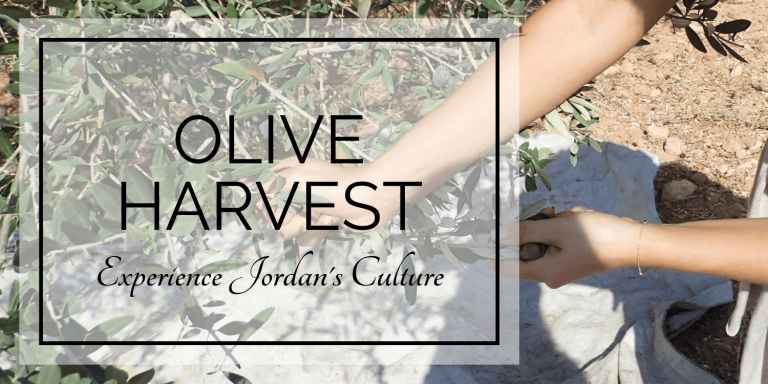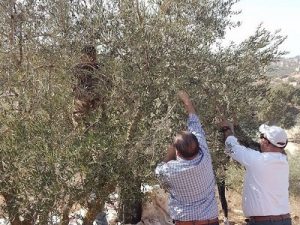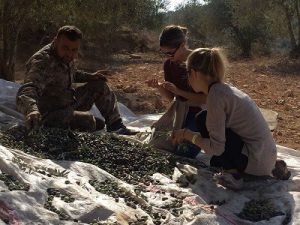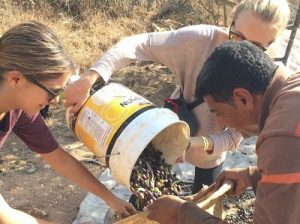- Experience
- Andy

Olive Harvest in Jordan
If you happen to be in Jordan in autumn, you are definitely lucky! …because that means that you can participate in the olive harvest, and experience this memorable event up close as you work alongside local families.
An essential part of Jordanian culture
The olive harvest is an established event in Jordan’s calendar. Since thousands of years it holds significance both in terms of tradition and in terms of being a vital source of income. This makes the farming of olives an essential part of Jordanian culture and economy. The products that emerge are diverse, and besides the olives also the wood is very valuable. It is fashioned into a variety of products from jewelry to household items and furniture, and then sold. Important note: Only wood from non-producing trees is used for that.
But the real deal are the olives! Or perhaps rather what’s made out of them is. Jordan is one of the world’s top-10 producers of olive oil. And this is a good thing, for it is also consumed by the gallon here. Practically every meal uses this precious ingredient – a local favorite is simply bread dipped in olive oil and Za’atar, a traditional Arab spice mixture consisting of thyme, roasted sesame seeds, salt, and additional other spices.

Wondering if you would be up to that task?
So, as stated above, if you are in Jordan during autumn, you have the great chance to visit a farm and participate in the olive picking process.
Here is a simple how-to:
- Stretch plastic tarpaulins below the tree.
- Pull your hand down every single branch, stripping the trees of the ripe olives, which then fall onto the tarpaulins.
- Once the tree is stripped of all the olives, shake them into the middle of the tarpaulin. Sift through them, and also remove the twigs that have fallen into the mix.
- Also collect any olives lying on the ground. Don’t even think about throwing dried and shriveled olives which are seemingly past their best! They are actually the best kind to take to the press. This is because the water has evaporated from them, leaving only concentrated oil behind.
- Pile the olives, now twig free, in buckets, which are poured into sacks. These sacks get transported to the warehouse and factory where the press lives. There, they are churned and juiced, pulped and purified, until only the gorgeous yellow oil remains.
This experience, which is part of our weekly walks program, offers excellent insight into a process that is at the heart of Jordanian culture, in terms of economy, cuisine and tradition. Of course, not all olives are turned into olive oil. There is another process that begins to create olives for eating. Yum! But that is for another post.
If you’re in Jordan now, sign up for the harvest – for a day in the fresh air of the green northern countryside with many new interesting insights and a lot of fun for young and old. You won’t regret it!
Get more information about this and other cultural experiences, events and trips here.




